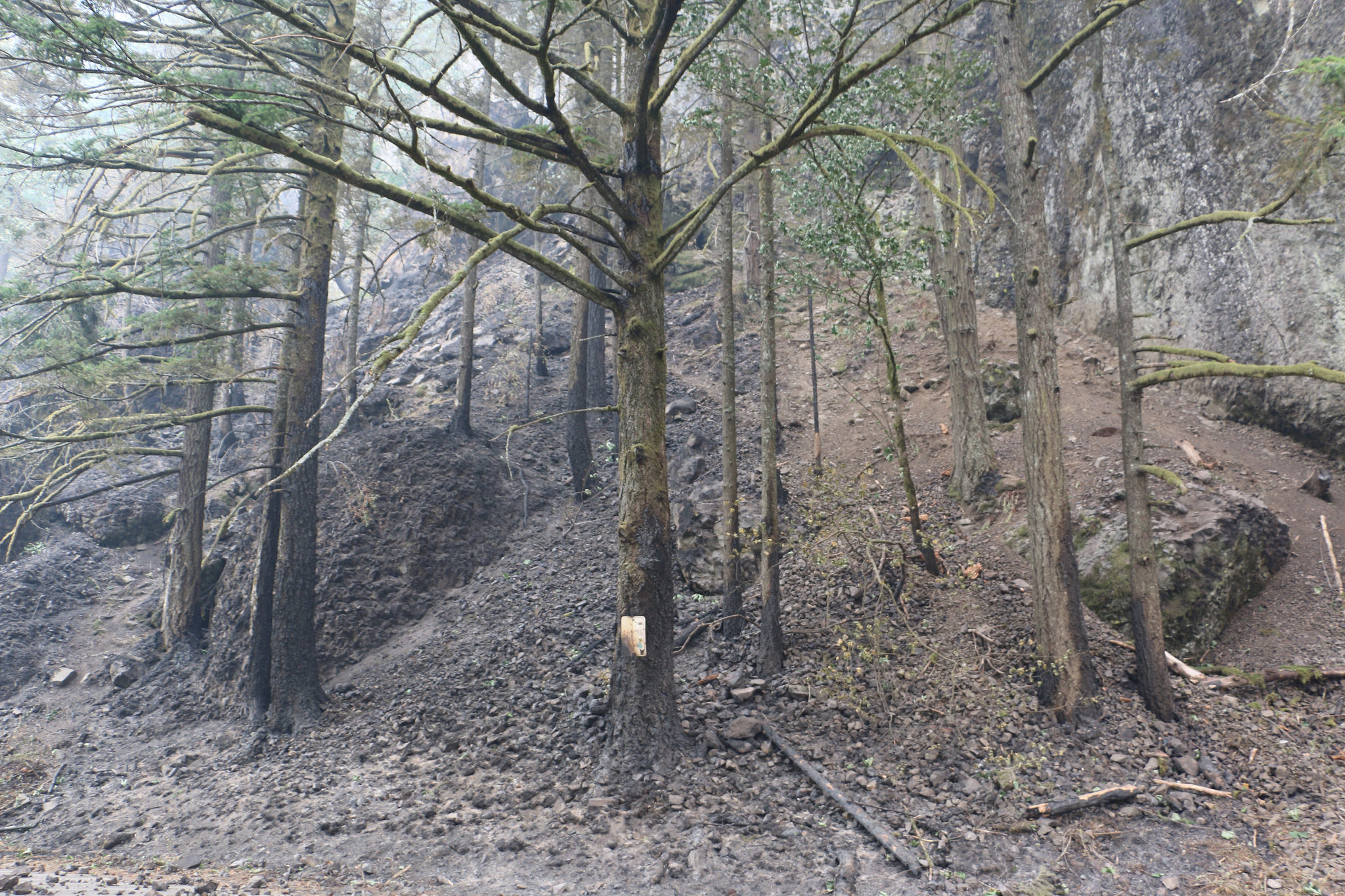A 15-year-old boy is suspected of igniting the Eagle Creek Fire in Oregon, which merged with another blaze this week and has now decimated nearly 31,000 acres in the Columbia River Gorge.
The blaze, which started on Saturday, spread rapidly throughout a region especially vulnerable after an unusually hot and dry summer. It left more than 140 hikers stranded overnight until they could be rescued on Sunday, and has since destroyed one home and four other structures, forced hundreds to evacuate, and closed at least 40 miles of Interstate 84. The fire slowed on Wednesday as winds died down, but it’s likely to be a temporary reprieve; it was only 5 percent contained as of Thursday morning, and increasing winds on Friday could make things much worse.
Liz FitzGerald, a Portland resident who was hiking in the gorge over the long weekend, told the Oregonian that she saw the group of teenagers responsible for igniting the blaze. FitzGerald said the teens giggled as one boy tossed a smoke bomb into Eagle Creek Canyon, while another boy recorded the act on his cell phone and a few young girls looked on.
Initially seeing only smoke from the firework, FitzGerald continued up the trail. But after encountering other hikers who said they’d seen the group throwing fireworks elsewhere along the trail, she turned around to head back to the trailhead and report the incident. By then, FitzGerald recounted to the Oregonian, the blaze had begun in the canyon. “It was so obvious to me that it was a fire,” she said. “I could see all of this smoke billowing up.” FitzGerald was able to make it back to the parking lot and alert the authorities before the fire blocked the trail; many other hikers weren’t so fortunate.
The neuroscience suggests kids should not be held as culpable for their crimes.
No arrests have been made and no charges filed as of Thursday, but law enforcement officials were able to stop and interview the suspect, identified only as a 15-year-old from Vancouver, Washington, and his friends in the parking lot of the trailhead over the weekend. The investigation is ongoing, and the Oregon State Police took to Facebook to ask that witnesses come forward. Many Facebook commenters have called for criminal charges for the accused.
“As far as I’m concerned, this fire was deliberate. There is zero possibility that high school age people who live in this area, did not understand the fire risk,” one woman wrote. “They need to be criminally charged, as adults, with arson. If anyone loses their life, they should be charged, as adults, with manslaughter.”
A similar debate played out online last December, after two juveniles in Tennessee were charged with aggravated arson for igniting a blaze that killed 14, injured almost 150 more, and damaged more than 2,400 buildings. (Those charges were ultimately dropped.) That sentiment, that the severity of the damage from a crime should determine the severity of the punishment no matter the age of the perpetrator, was once as pervasive in the criminal justice system as it is among the public today. But as I wrote last year, the court system has since caught up with the latest neuroscience that suggests kids should not be held as culpable for their crimes.

(Photo: Oregon Department of Transportation/Flickr)
“In particular, the part of the brain responsible for impulse control, and for weighing the long-term consequences of one’s actions, is not yet fully formed in one’s teenage years,” Beth Caldwell, a professor at Southwestern Law School in Los Angeles, told me last year. “Thus, no matter how horrible one’s actions are during adolescence, it is not fair to hold juveniles to the same standards as adults because, as the Supreme Court has said in opinions limiting Life Without Parole for juvenile offenders, they are not as ‘blameworthy’ as adults.”
Indeed, FitzGerald said she admonished the teens who she saw start the fire in Oregon over the weekend for their behavior, but they didn’t seem to understand what they had done. “There was complete indifference,” she told the Oregonian. “It was weird. I was just like: ‘You’re not getting this on any level. You’re not getting this at all.'”
Of course, that doesn’t mean young perpetrators shouldn’t face any punishment at all. Juvenile courts exist for a reason; they are better suited to both punish and rehabilitate youthful offenders than the adult prison system. After all, research shows that kids who are housed in adult prisons are more vulnerable to violent attacks, sexual assault, and suicide, and ultimately are more likely to re-offend than their peers who go through the juvenile justice system.
As one of the first juvenile court judges put it back in 1910: “The child who must be brought into court should, of course, be made to know that he is face-to-face with the power of the state, but he should, at the same time, and more emphatically, be made to feel that he is the object of its care and solicitude.”



